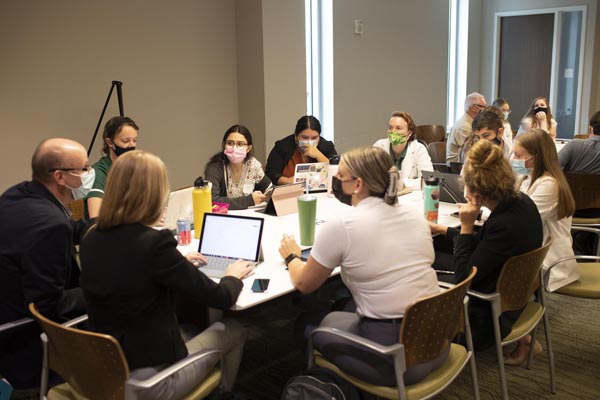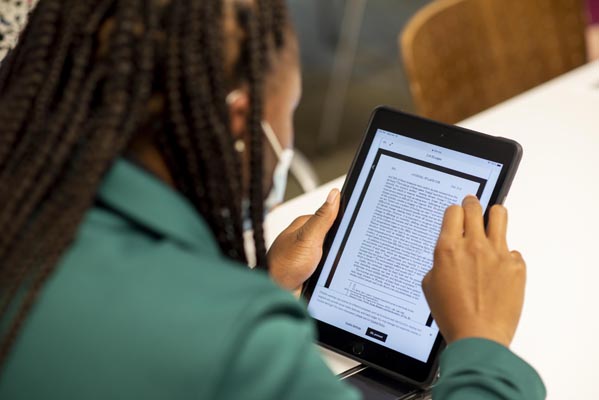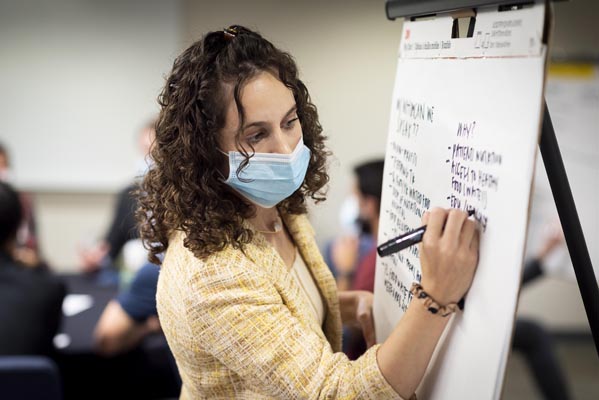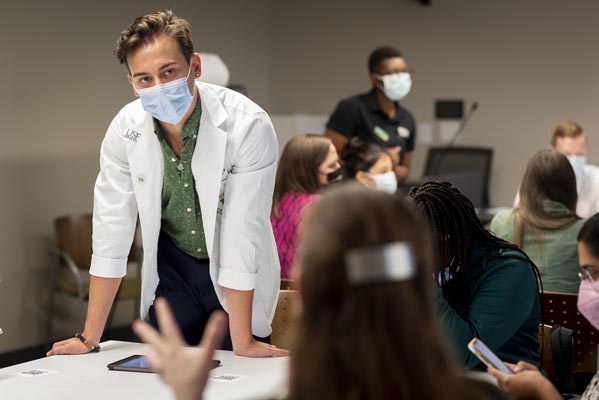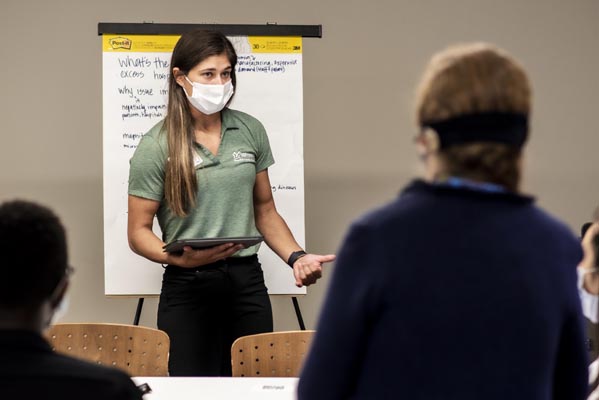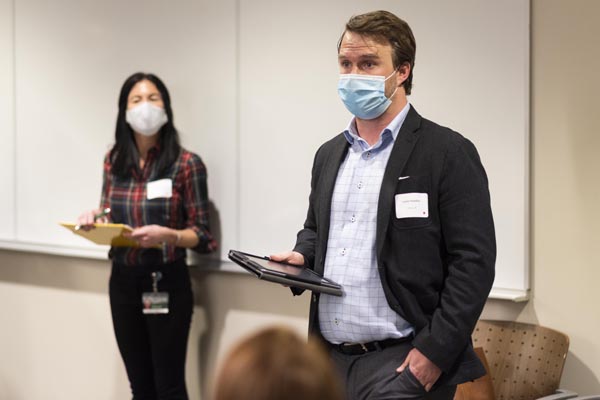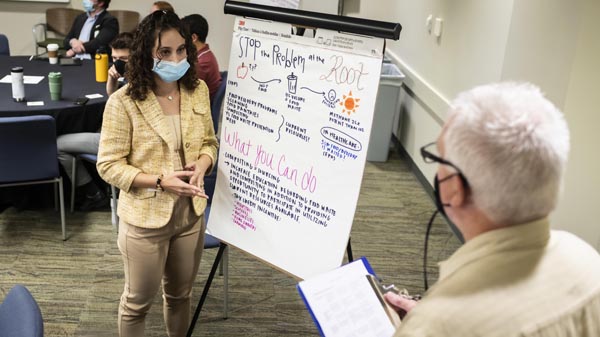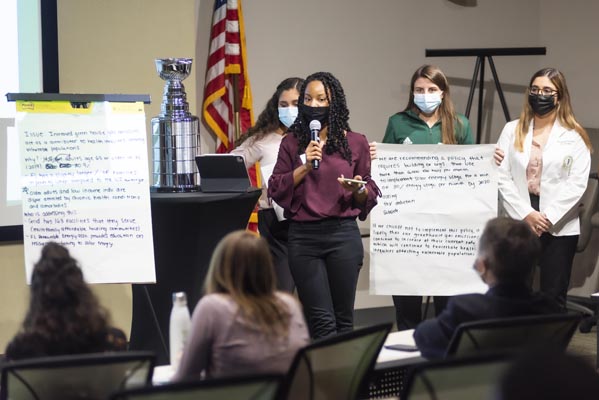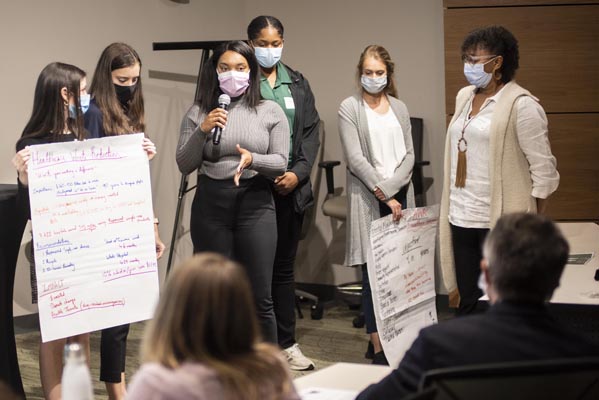
The trophy that has become synonymous with USF Health IPE Day. The winning group of the team activity will have their names engraved on the trophy.
Climate change is the biggest, most imminent threat to global health. That was the key message at the USF Health 4th Annual Interprofessional Education Day, held Nov 10 and hosted by the Office of Interprofessional Education and Practice.
This year’s program, Climate Change: Interprofessional Solutions for a Human Health Crisis addressed offered greater insight into how climate change will impact health care delivery. The event, brought students, staff, faculty and health care professionals together to discuss how health care professionals can do their part in helping to identify the effects of climate change through patient care.
The morning was filled with impactful virtual presentations from world-renowned physicians, activists, and climate change experts who presented facts and case studies on the impact climate change is having on health care and patient outcomes. Speakers emphasized the role health care professionals can play in affecting climate change.

The 4th Annual USF Health IPE Day began with a greeting from Haru Okuda, MD, FACEP, FSSH, USF Health Center for Advanced Medical Learning and Simulation director and Office of Interprofessional Education and Practice director.
IPE Day featured speakers, topics, and summary:
Aaron Bernstein, MD, MPH, interim director of The Center for Climate, Health and the Global Environment at the Harvard T.H. Chan School of Public Health, and assistant professor of pediatrics at Harvard Medical School.
Climate Change: What Every Florida Provider Needs to Know
Dr. Bernstein kicked off the featured speakers morning with a presentation on how climate change is fueling more severe weather events and the negative impact extreme heat is having on the health and well-being of the population. His most powerful example was Hurricane Maria and the ripple effect it had on mainland hospitals. Puerto Rican-based factories owned by a major manufacturer of IV bags were shut down in the wake of the category-5 hurricane that devastated the U.S. territory in 2018. As a result, there was a critical shortage of IV bags for hospitals. Additionally, the hurricane forced nearly 400,000 people to leave, approximately 150,000 of whom moved to Florida. He also mentioned the health effects associated with extreme heat including higher rates of suicide, preterm births, workplace injuries, and medication usage.
His key messages were:
- We must adapt clinical practice to climate reality.
- Accessible, high quality health care requires climate action.
- Health equity requires climate action.
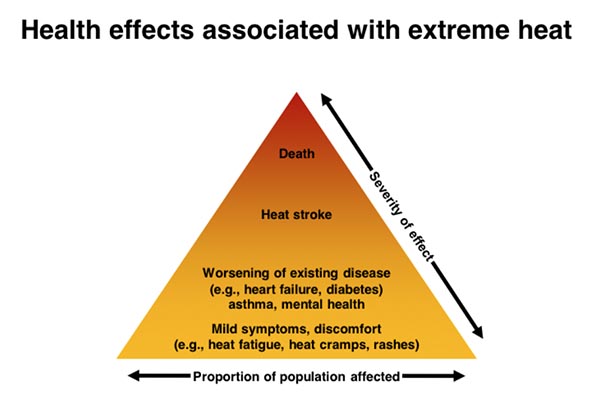
Slide taken from Dr. Bernstein’s presentation.
Howard Frumkin, MD, DrPH, MPH, senior vice president at The Trust for Public Land, professor emeritus, University of Washington School of Public Health
Healthy Climate Solutions, and the Role of Health Professionals
Dr. Frumkin presented clinical evidence on the power of “hope.” In his presentation, he stated people feel better, handle stress better, live longer, and have greater cognitive flexibility and creativity, and have higher academic achievement when they are hopeful. His most notable examples were policy shifts that include President Joe Biden’s promise to reduce greenhouse emissions by 50% in the U.S., and 20 countries that made “Net-zero Commitments” at the United Nations Climate Change Conference in the United Kingdom. “There are many roles for health professionals in tackling the climate crisis and propelling hope,” was the theme of his message.
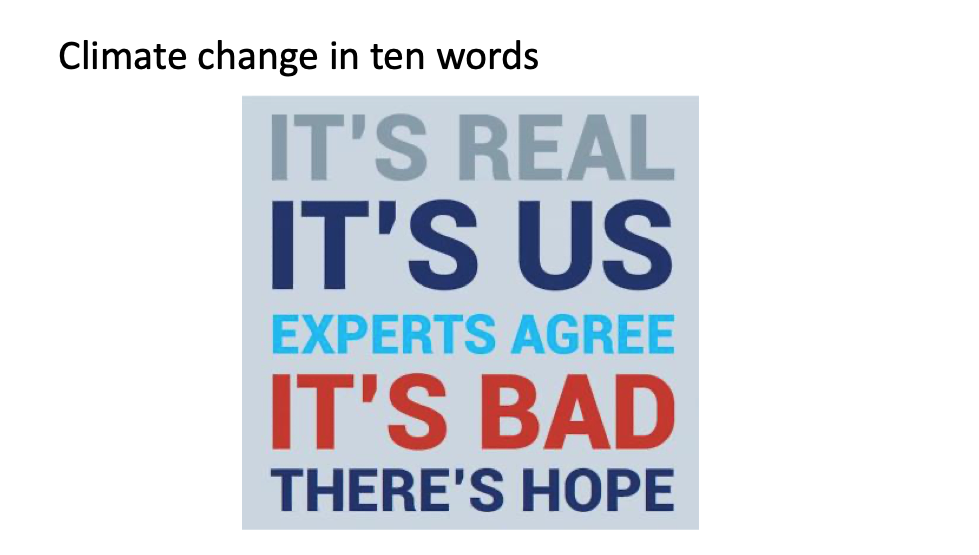
Slide taken from Dr. Frumkin’s presentation.
Cheryl L. Holder, MD, associate professor and associate dean for Diversity, Equity, Inclusivity and Community Initiatives at Florida International University; co-chair of the Florida Clinicians for Climate Action.
There’s So Much We Can Do
Dr. Holder gave personal examples from patient interactions of how climate change is affecting the most vulnerable of populations. She stated that particulate pollution are higher in low-income and minority communities. Homes with inadequate living conditions experienced higher energy burdens than the average household in the same city. She used the acronym “HEATWAVE,” image below, to describe how climate change can impact health and later mentioned the steps for climate solutions: listen and learn, and advocate.

“HEATWAVE” acronym slide from Dr. Holder’s presentation.
A panel discussion, moderated by Donna Petersen, USF Health associate senior vice president and USF Health College of Public Health dean, wrapped up the morning session of the day. Panelists discussed what they were doing to educate their patients and constituents on the effects of climate change and the adverse effects it’s having on health care, and solution to reducing the carbon footprint of their organizations. Panel experts:
- Caren Solomon, MD, MPH, deputy editor of the New England Journal of Medicine and associate professor of medicine at Harvard Medical School, Brigham and Women’s Hospital
- Patrice K Nicholas, DNSc, DHL (Hon.), MPH, MS, RN, NP, NP-C, FAAN, director of the Center for Climate Change, Climate Justice and Health Massachusetts General Hospital Institute of Health Professions; co-director for policy and advocacy at the MGH Center for the Environment and Health
- Haley Blackburn, PharmD., BCACP, BC-ADM, assistant professor at the University of Montana Skaggs School of Pharmacy, co-founder of Rx for Climate.
- David Drake, DO, MTS, board of directors president for Physicians for Social Responsibility
- Jon Utech, senior director of the Cleveland Clinic Office for a Healthy Environment
The afternoon session began with Karen Liller, PhD, USF Health College of Public Health professor, and founder and director of the Activist Lab, giving the students a lesson in how to effectively advocate for a cause. She said the most important components to advocacy are coalition forming, setting a clear and concise mission, and collaboration. With this new knowledge, USF Health students broke into groups and began working on their team projects.
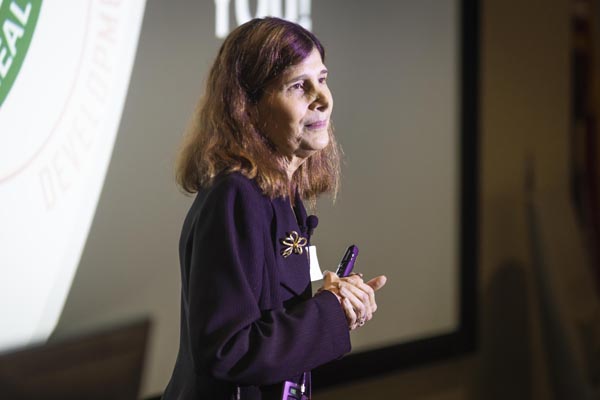
Karen Liller, PhD, College of Public Health professor and director of the Acitist Lab, education the group on effective advocacy during the 4th Annual USF Health IPE Day, Nov. 11.
In traditional IPE day style, teams of students, with guidance from faculty preceptors, began to form coalitions to advocate for a cause. Twelve groups were given one of four causes to advocate for. They were tasked with:
- Researching the economic impact.
- Researching the health impact.
- Identifying how the cause will help reduce the carbon footprint.
- Identifying members to be part of their coalition.
- Present their findings in a 5-minute presentation to the judges.
The top team representing each advocacy cause made presentations to the entire group in the CAMLS auditorium. After an “American Idol” style text-to-vote, the team charged with Light Rail Advocacy to the County Commissioners took home top honors in the competition. The team will have their name etched in USF Health history on the IPE Day plaque.

Gabriella Cruz and her team delivered the winning presentation during IPE Day 2021.
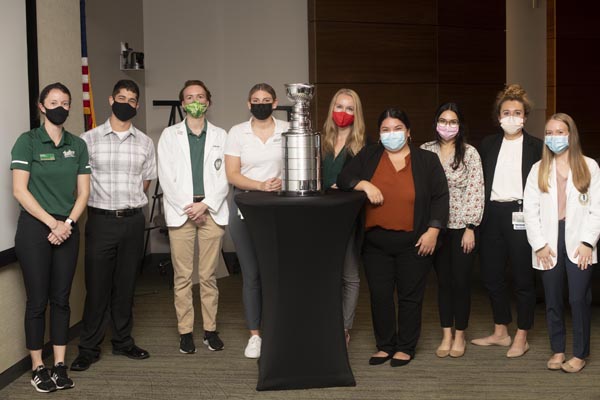
The winning team of students from the USF Health 4th Annual IPE Day (not in order as seen): Elliot Barrett, Taneja College of Pharmacy; Kayla Blair, Athletic Training Program; Gabriela Cruz, College of Public Health; Elizabeth Von Haunalter, Morsani College of Medicine; Sarah Kollas, School of Physical Therapy and Rehabilitation Sciences; Doniya Milani, MCOM; Benedetto Santorelli, College of Nursing; Morgan Smith, Physician Assistant Program; Sara Stubben, COPH. Not pictured is faculty advisor to the group Douglas Haladay, PT, DPT, PhD, MHS, OCS, CSCS, School of Physicial Therapy and Rehabilitation Sciences director.
USF Health and community leaders on IPE Day and climate change:
“This year’s theme brings us face to face with perhaps the most daunting, complex and existential threat facing our small fragile planet. As health providers, our number one priority is to make life better for our patients and our communities. We can do that by working to establish a healthier more sustainable world and caring for those communities most negatively impacted by a warming planet.” Charles Lockwood, MD, MHCM, USF Health senior vice president and Morsani College of Medicine dean.
“IPE Day is a day where we take on big topics that require the collaboration and cooperation of diverse expertise and perspectives from various professions and backgrounds, both within and outside of health care to learn about the importance of IPE and make a difference in our community and beyond.” Haru Okuda, MD, FACEP, FSSH, USF Health Interprofessional Education and Practice assistant vice president, and USF Health Center for Advanced Medical and Learning Simulation executive director.
“Having just lived through a pandemic, it’s hard to fathom that there may be an even bigger threat to humanity. As trusted health professionals, people look to us for guidance, and we can help our patients and our communities understand that they can and should be part of the collective response and do their part as individuals.” Donna Petersen, USF Health senior associate vice president and USF Health College of Public Health dean.
“As we look at climate solutions, promoting public health and environmental justice go hand-in-hand. When you think about the challenges ahead, we are listening in congress and we are ready to make progress.” Congresswoman Kathy Castor, Tampa representative to U.S. House of Representatives, chair of the House Committee on Climate Crisis.
Group presentations and preparation during IPE Day 2021:
